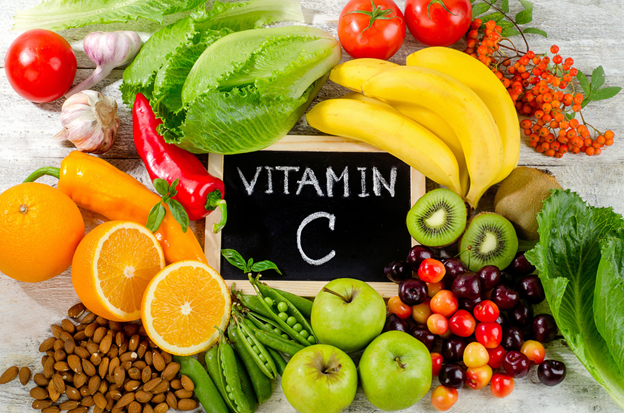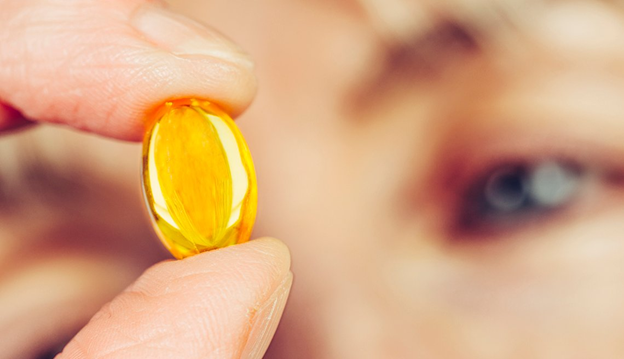Our eyes are one of the most important organs present inside our bodies that help us visualize the entire world. Our eyes add beauty to life by making us see all the colors and perceiving everything around us. With eyes having such an important function, many people care less about it.

Many people do not visit an opthalmologist unless their vision has deteriorated to the extent that it cannot be reversed back. They are stuck wearing enormous spectacles for the rest of their lives or have to get extensive surgical procedures to repair the damage.
Therefore, it is important to take care of your eyes as much as possible to take care of every other system of your body. Making sure you are eating the right food, wearing protective glasses to prevent UV damage, restricting bad habits (like smoking and drinking) can go a long way in helping your eyes stay healthy.
Best Natural Supplements for Eyes
There is a lot packed in nature that provides a lot of nourishment to the cells of the eyes. The working of transmission of light its perception depends a lot on the cells of the retina. The mechanism of vision requires certain compounds to help break down the light emitted on the outside into finally developing a clear 3D image.
Many people believe that natural supplements cannot help with vision or prevent an ocular disease from happening. However, after a lot of research, it has been seen that many supplements can help prevent or slow certain eye conditions, such as; Age-related Macular Degeneration and cataracts. Certain supplements have also been linked with improvements in vision, especially after using Vitamin A.
Compounds that are part of many supplements that can improve eye health are mentioned below;
1. Lutein
Lutein belongs to the family of carotenoids. It is very famously known to improve vision and protect the eye against many diseases.
This compound is so strongly linked with improvements in eye health due to its extensive anti-oxidant property. It has widely been believed through many kinds of research that compounds that with anti-inflammatory and antioxidant properties help prevent the many chronic diseases that occur inside the human body.
Lutein is the most abundantly present compound in all structures responsible for providing vision. It is most concentrated in the region of the macula of the retina. The macula is the point at which the highest resolution image is perceived. With the highest visual acuity and exposure to light, lutein has indirectly been seen to play a role in influencing the cones for better daylight vision.
The structure of lutein is such that it has many biological functions, including; protection of eyes from harmful UV waves, as well as against oxidative stress and inflammatory processes.
Two of the major applications of lutein supplements is its effects in delaying the progression of age-related ocular diseases such as ARMD and Cataract.
AMD (Age-Related Macular Degeneration)
AMD is a chronic condition that results in damage to the macula of the retina resulting in blurry vision, with decreased visual acuity (VA), macular pigment optical density (MPOD), and contrast sensitivity (CS). It is one of the leading causes of blindness in developed countries.
A strong association has been seen with the consumption of lutein and a decrease in the incidence of early AMD. According to a study published in 2004 in the Journal of the American Optometric Association, including 90 individuals with atrophic AMD. They conducted the very famously known LAST (The Lutein Antioxidant Supplementation Trial). This double-masked randomized control trial took 12 months for completion, in which affected individuals were given 10mg/d Lutein supplementation. At the end of the one-year study program, it was seen that all these individuals have increased levels of MPOD and also had better visual acuity and contrast sensitivity. [1]
Cataract
A cataract is the permanent opacification of the lens, which leads to visual disturbances. It has been seen that the consumption of antioxidant supplements works in a lot of ways to prevent this damage from happening. Since the formation of cataracts is due to the free radicals and reactive oxygen species present in the body, its elimination can help prevent damage to the lens fibers.
Studies conducted in-vitro have shown great outcomes, with lutein supplementation preventing cataracts in bovine cells. It has also been seen to prevent damage to the lens fibers by protecting them from ultraviolet light. [2]
Dietary Lutein intake
It has been estimated through various Food safety authorities (Joint Expert Committee on Food Additives and European Food Safety Authority) that the daily intake of lutein should not exceed 1-2 mg/kg.
2. Vitamin A
Vitamin A is one of the most important vitamins required for effective vision. It provides the protein rhodopsin that is converted in the presence of light. The retinoids family has many precursors which help in the detection of light and so on.
Many ocular diseases manifest if vitamin A is deficient in the body. This compound helps in maintaining the structure of the cornea and prevents damage through its anti-inflammatory activities.
Night blindness due to deficiency of vitamin A can then progress to xerophthalmia, which can lead to permanent blindness. Therefore, it is important to instill vitamin A in the diet to avoid future complications. There are many foods rich in vitamin A, such as; carrots, leafy vegetables, bell peppers, and pumpkins. Supplements of vitamin A are also a good alternative. However, it is important to take the required dosage; otherwise, it can lead to toxicity.
3. Zinc
The eyes are one of the most sensitive organs in the human body. Therefore extreme care needs to be employed to prevent it from getting damaged. Zinc is one of the elements that maintain the retina's structure and helps metabolism by promoting enzyme activity.
Ions of zinc present in superoxide dismutase help neutralize reactive oxygen species, which can severely damage the cells of the retina and its neighboring structures. The regeneration of damaged membrane structures is also aided in zinc, making it one of the most essential elements to be needed to maintain the function of the eyes.
4. Vitamin E
Vitamin E is one of the fat-soluble vitamins. The main active form of vitamin E is alpha-tocopherol. This compound helps in the maintenance of the lipid cell membranes. Many free radicals can destroy the cell structure by lipid oxidation, where the alpha-tocopherol compound comes into play by neutralizing the free radicals.
The eyes are protected by vitamin E due to its increased expression of anti-inflammatory products, which prevents damage and helps protect the eyes from ocular diseases.
5. Omega 3 fatty acids

Omega-3 fatty acids are one of the most essential and healthy compounds needed by the body. They are a type of polyunsaturated fats and are needed by every cell. The cell membranes of the retina require a high amount of DHA, which belongs to the family of omega-3.
These compounds have been seen to contain many anti-inflammatory properties, which ultimately results in the prevention of diabetic retinopathy. They also help in the prevention of dry eyes. Many foods contain omega-3 fatty acids, including flax seeds, chia seeds, and nuts.
6. Vitamin C

Vitamin C is also known as Ascorbic Acid. It is present in various fruits and vegetables, including blackberries, oranges, grapefruits, tomatoes, spinach, and strawberries.
There are many different functions of vitamin C in the body, including the synthesis of collagen and other structural proteins. It also helps in wound healing and works as a great antioxidant. The application of vitamin C in maintaining eye health is due to the high metabolic activity of the eye, which often results in the production of free radicals and other harmful oxygen species. Vitamin C not just helps eliminate these byproducts but also regenerates the other antioxidants in the tissues.
7. Riboflavin
Riboflavin, also known as Vitamin B2, is one of the water-soluble vitamins, and therefore there are fewer chances of its toxicity.
This compound has been seen to prevent the formation of cataracts due to its excellent anti-oxidant property.
According to clinical trials and studies, it has been seen that riboflavin supplements can prevent the occurrence of cataracts up to 30-50%. It is also found in many fortified cereals, oats, yogurt, milk, and beef.
Dietary Intake of Riboflavin
The recommended dietary intake of riboflavin is up to 1.6 -2.2 mg per day.
8. Saffron
Saffron has long been used in herbal medicine as a cure for many diseases. With its anti-spasmodic, anti-oxidant, anti-inflammatory, and anti-tumor properties, it has widely been used in the modern world. The active component present in his compound is crocin and crocetin. They belong to the family of carotenoids, and therefore it is involved vastly in the prevention of many ocular diseases and slowing their progression. Many studies have been done on this compound to extract all the benefits that it offers, with many positive outcomes.
One of the major therapeutic effects observed through many clinical trials was a great decrease in the incidences of diabetic maculopathy, glaucoma as well as age-related macular degeneration. These are some eye diseases due to the damage caused by the free radicals floating about in the body. The constituents of saffron work by clearing the destructive free radicals and preventing the damage.
9. Glaucoma
Through clinical studies, it has been seen that primary open-angle glaucoma can be treated after the consumption of saffron supplements. Individuals suffering from this disease were given 30 mg of saffron supplements every day, which showed decreased intro ocular pressure within a matter of three weeks.
This double-blinded placebo-controlled randomized control trial was conducted on 34 individuals with POAG in 2014, showing a positive association with the effects of saffron and a decrease of raised intraocular pressure. [8]
10. Niacin
Niacin belongs to the family of Vitamin B complexes (Vitamin B3). It is one of the important vitamins needed for several metabolic processes. These processes help in the generation of energy.
Studies conducted on the association of niacin supplements and ocular diseases have shown that it helps prevent glaucoma. Glaucoma can be due to many factors, which ultimately increase intraocular pressure. This increase in pressure can therefore compress the optic nerve and lead to blindness.
A positive association between the increased risk of glaucoma and deficiency of niacin was found in an observational study. [7]
Dietary intake of Niacin
The amount of consumption of niacin supplements should not exceed 1.5-5 grams/day.
References
1. Richer S, Stiles W, Statkute L, Pulido J, Frankowski J, Rudy D, Pei K, Tsipursky M, Nyland J. Double-masked, placebo-controlled, randomized trial of lutein and antioxidant supplementation in the intervention of atrophic age-related macular degeneration: the Veterans LAST study (Lutein Antioxidant Supplementation Trial). Optometry-Journal of the American Optometric Association. 2004 Apr 1;75(4):216-29.
2. Hu Y, Xu Z. Effects of lutein on the growth and migration of bovine lens epithelial cells in vitro. Journal of Huazhong University of Science and Technology [Medical Sciences]. 2008 Jun;28(3):360-3.
3. Rasmussen HM, Johnson EJ. Nutrients for the aging eye. Clinical interventions in aging. 2013;8:741.
4. Buscemi S, Corleo D, Di Pace F, Petroni ML, Satriano A, Marchesini G. The effect of lutein on eye and extra-eye health. Nutrients. 2018 Sep;10(9):1321.
5. Mares J. Lutein and zeaxanthin isomers in eye health and disease. Annual review of nutrition. 2016 Jul 17;36:571-602.
6. Heitmar R, Brown J, Kyrou I. Saffron (Crocus sativus L.) in ocular diseases: A narrative review of the existing evidence from clinical studies. Nutrients. 2019 Mar;11(3):649.
7. Jung KI, Kim YC, Park CK. Dietary niacin and open-angle glaucoma: The Korean national health and nutrition examination survey. Nutrients. 2018 Apr;10(4):387.
8. Bonyadi MH, Yazdani S, Saadat S. The ocular hypotensive effect of saffron extract in primary open angle glaucoma: a pilot study. BMC complementary and alternative medicine. 2014 Dec;14(1):1-6.


